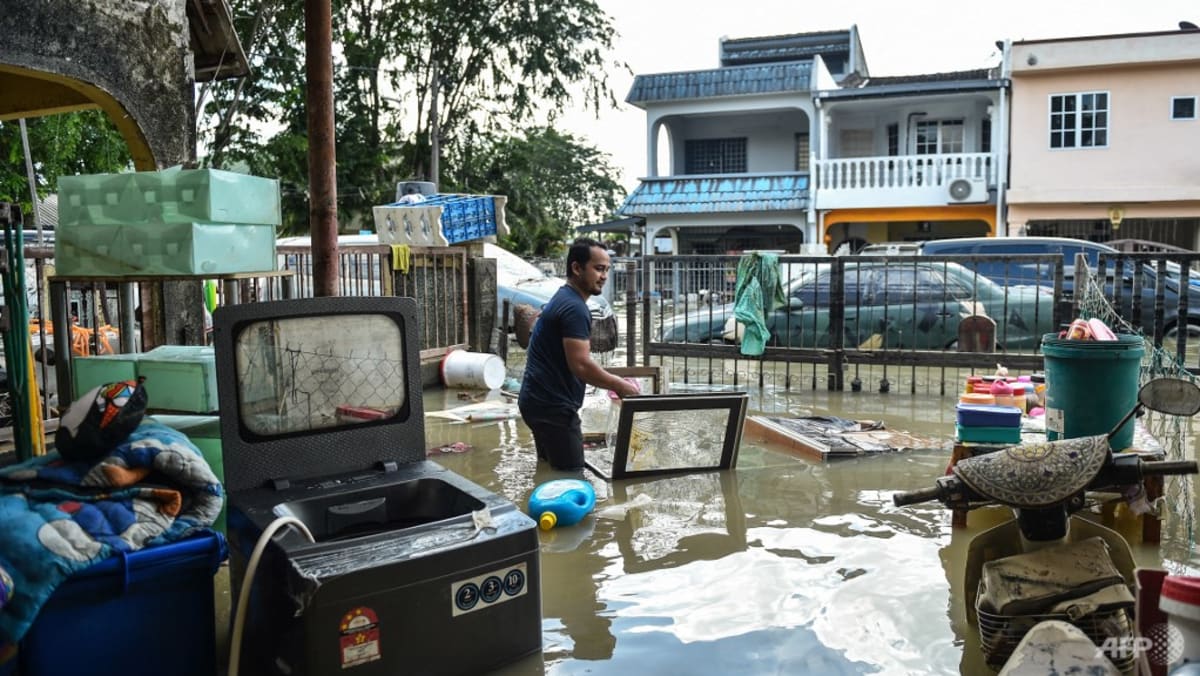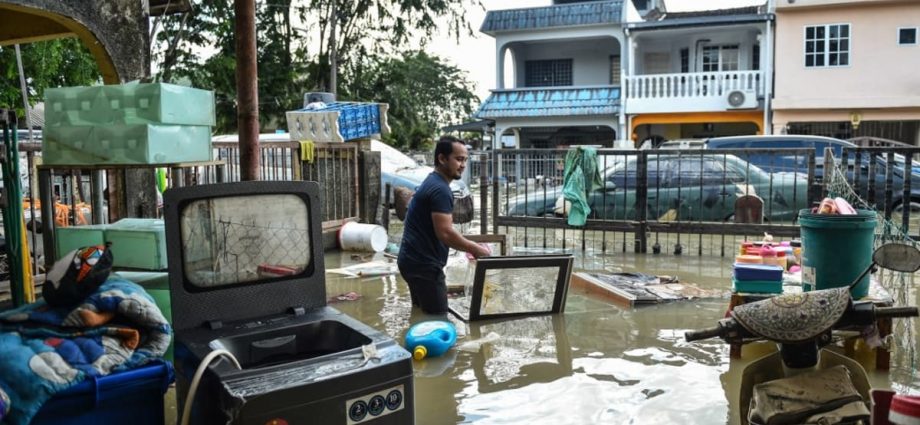
It’s crazy that just months after that incident, they are thinking of holding elections (during this monsoon season). It’s a complete disregard for the lives and livelihoods of thousands of voters,” said the 62-year-old.
“If it floods again (on polling day), I would not risk my health and my life to go cast a ballot,” he added.
THE WORST FLOODING IS YET TO COME: OPPOSITION
UMNO’s and Barisan Nasional (BN) coalition’s calls for an early election have been criticised by the opposition and Mr Ismail Sabri’s own Cabinet members. Malaysia’s Meteorological Department has also warned of heavy rain and floods during the upcoming monsoon season.
Opposition politicians interviewed by CNA noted that sporadic flash floods are already occurring in some areas, a possible sign that the worst is yet to come.
Parti Keadilan Rakyat (PKR) strategy director Akmal Nasrullah Mohd Nasir said: “We can all see that the worst part of the monsoon is coming. We have seen the weather transitioning over the last few weeks, and we have already seen the impact to the residents who have experienced flash floods.”
“It’s pretty straightforward. We cannot postpone the monsoon, but we can postpone the elections,” said the incumbent Member of Parliament for Johor Bahru.
PKR is part of the opposition Pakatan Harapan coalition.
He added that of the nine states due to hold state elections in tandem with the national polls, six have declined to dissolve their state assemblies. This leaves only three states led by UMNO and BN – Pahang, Perak and Perlis.
The presidential council of PH said in a statement last Wednesday that the three states controlled by the coalition – Selangor, Negeri Sembilan and Penang – will only dissolve their state assemblies next year due to concerns over floods.
State assemblies led by Parti Islam Se-Malaysia (PAS) – Kelantan, Terengganu and Kedah – will also not be dissolved if a general election is held soon, said party deputy president Tuan Ibrahim Tuan Man last Wednesday.
Ms Amira Aisya Abdul Aziz, deputy president for youth-centric Malaysian United Democratic Alliance (MUDA), told CNA that the decision to call for elections during this uncertain period was the act of a “cruel government” with no regard for the sufferings of the people.
She said that if floods were to occur in some areas on polling day, it would be a logistical problem given that polling stations like schools and community centres are likely to double up as relief centres for flood victims.
“At the end of the day, those who are overworked will be civil servants like the police officers, who may be stretched by balancing flood rescue operations and ensuring that the electoral process runs smoothly,” added the state assemblywoman for the Puteri Wangsa constituency in Johor.
UMNO’S EARLY POLLS GAMBIT MAY BACKFIRE: ANALYST
UMNO president Ahmad Zahid Hamidi has consistently maintained that the opposition have been using the flood narrative to resist an early GE15, describing it as a “myth”.
He noted that in 1999, then prime minister Mahathir Mohamad called for snap polls in November and “it did not become a big issue” at that time.
In a Facebook post after parliament was dissolved, he wrote: “UMNO and its leadership once again magnanimously returned the mandate to the people to decide on a new government.
“UMNO asked for parliament to be dissolved when the coalition government is at the height of its powers for the benefit and future of the people and the country.
“God willing, this is the right step to give the people the mandate to restore stability and prosperity to Malaysia.”
Mr Ismail Sabri also said that he opted to dissolve parliament in order to prevent disharmony in the Cabinet, after Perikatan Nasional (PN) ministers wrote to the king to voice their objections over holding polls during the monsoon season this year.
Political analyst Wong Chin Huat, who is the deputy head overseeing strategy issues for the United Nations Sustainable Development Solutions Network’s Asia headquarters (SDSN-Asia) at Sunway University, acknowledged that there are strategic reasons why UMNO and BN have opted to call for early polls.
However, he maintained that it is a gamble that could backfire, especially if voters are angered by scenes of floods during the course of campaigning.
“UMNO may justify the early poll using various reasons such as how the opposition is in disarray and their voters are demoralised now, the coalition government (led by PM Ismail Sabri) is unstable and that the economy will get worse next year,” said Prof Wong.
“But none of these can be sure to offset the risk of having voters turning against BN for insisting on GE15 amid floods.

